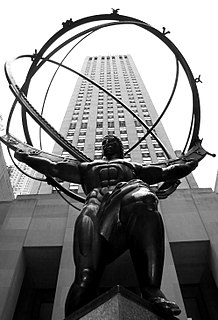A Quote by Philip Zimbardo
The "Lucifer Effect" describes the point in time when an ordinary, normal person first crosses the boundary between good and evil to engage in an evil action. It represents a transformation of human character that is significant in its consequences. Such transformations are more likely to occur in novel settings, in "total situations," where social situational forces are sufficiently powerful to overwhelm, or set aside temporally, personal attributes of morality, compassion, or sense of justice and fair play.
Quote Topics
Action
Aside
Attributes
Between
Boundary
Character
Compassion
Consequences
Crosses
Effect
Engage
Evil
Fair
Fair Play
First
Forces
Good
Good And Evil
Human
Justice
Likely
Lucifer
Morality
More
Normal
Normal Person
Novel
Occur
Ordinary
Overwhelm
Person
Personal
Play
Point
Powerful
Represents
Sense
Set
Settings
Significant
Situational
Situations
Social
Time
Total
Transformation
Related Quotes
For the first time in history, the rational and the good are fully armed in the battle against evil. Here we finally find the answer to our paradox; now we can understand the nature of the social power held by evil. Ultimately, the evil, the irrational, truly has no power. The evil men’s control of morality is transient; it lives on borrowed time made possible only by the errors of the good. In time, as more honest men grasp the truth, evil’s stranglehold will be easily broken.
As we have come to understand the psychology of evil, we have realized that such transformations of human character are not as rare as we would like to believe. Historical inquiry and behavioral science have demonstrated the "banality of evil" -- that is, under certain conditions and social pressures, ordinary people can commit acts that would otherwise be unthinkable.
We want to believe in the essential, unchanging goodness of people, in their power to resist external pressures, in their rational appraisal and then rejection of situational temptations. We invest human nature with God-like qualities, with moral and rational faculties that make us both just and wise. We simplify the complexity of human experience by erecting a seemingly impermeable boundary between Good and Evil.
Evil denotes the lack of good. Not every absence of good is an evil, for absence may be taken either in a purely negative or in aprivative sense. Mere negation does not display the character of evil, otherwise nonexistents would be evil and moreover, a thing would be evil for not possessing the goodness of something else, which would mean that man is bad for not having the strength of a lion or the speed of a wild goat. But what is evil is privation; in this sense blindness means the privation of sight.
Suspending moral judgment is not the immorality of the novel; it is its morality. The morality that stands against the ineradicable human habit of judging instantly, ceaselessly, and everyone; of judging before, and in the absence of, understanding. From the viewpoint of the novel's wisdom, that fervid readiness to judge is the most detestable stupidity, the most pernicious evil.
If we don't have a clear sense of our identity and purpose, we are much more vulnerable to Lucifer. He of course knows this and accordingly attempts to blur our vision. He lies. He shades and obliterates truth. He makes evil look good and good look unenlightened and unsophisticated. Make no mistake about it: Lucifer will do anything to derail, disappoint, dishearten, discourage, and deceive us—and particularly those who have made and are seeking to keep sacred covenants. His motives are entirely self-centered, selfish, destructive, and evil.
In the story of the Creation we read: ". . . And behold, it was very good." But, in the passage where Moses reproves Israel, the verse says: "See, I have set before thee this day life and good, and death and evil." Where did the evil come from? Evil too is good. It is the lowest rung of perfect goodness. If you do good deeds, even evil will become good; but if you sin, evil will really become evil.
In the alchemy of man's soul almost all noble attributes- courage, honor, love, hope, faith, duty, loyalty, and so on - can be transmuted into ruthlessness. Compassion alone stands apart from the continuous traffic between good and evil proceeding within us. Compassion is the antitoxin of the soul: where there is compassion, even the most poisonous impulses remain relatively harmless.



































